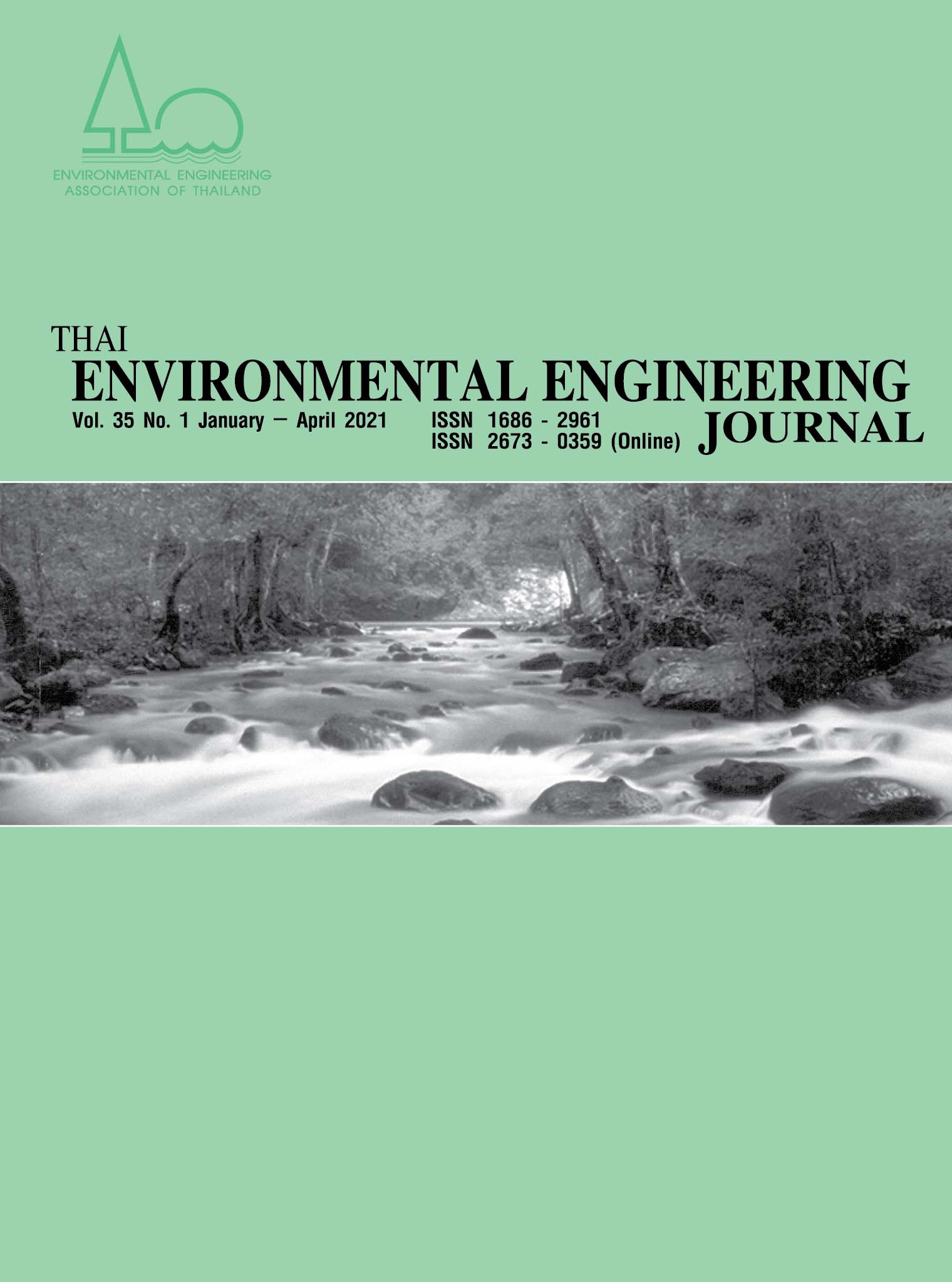Decarbonizing Thailand: A Socio-economic Impact Study of Peak Emissions Before 2050
Main Article Content
Abstract
Paris Agreement has confirmed that all countries will hold the increase in the global average temperature to well below 2 degree Celsius above pre-industrial levels and to pursue the efforts to limit the temperature increase to well below 1.5 degree Celsius. Because there is a strong link between GHG emissions and economic development. That is to say, the increase of consumption will increase the standards of living too. Therefore, it is necessary for the researchers and policy makers to assess the socio-economic status that can maintain the GDP growth while reducing GHG emissions to mitigate climate change and safeguard the world. Thailand as a member of UNFCCC has pledged the Nationally Determined Contribution (NDC) stated that by 2030 GHG emissions in the country will be reduced by 20% compared to the business-as-usual (BAU) level. From the current stage, even if Thailand achieve its pledge in the Paris Agreement, the country is still far from the 2 degree Celsius target. Therefore, more ambitious measures are required and Thailand should pursue the peak GHG emissions at the earliest as a first step to make the country backing on track to achieve 2 degree target. By recognizing the important role of market-based mechanisms, this study uses computable general equilibrium model to assess the socio-economic impact of limiting GHG emissions in the target year 2020, 2030, and 2040 respectively compared to BaU. The result informed that achieving 2 degree Celsius target will cause Thailand cumulative GDP loss during 2010-2050 by 2.7% in Peak2020, 1.9% in Peak2030 and 0.9% in Peak 2050 respectively in 2050 compared to BaU. Peak emissions early will have more negative impact to Thai economy; however, carbon price as an economic external cost is increased to the highest level (9,072 THB / t CO2.eq) in Peak2040 scenario to keep Thailand backing on track. This can imply that the later peak emissions are observed, the higher cost is required to curve the emissions trajectory to meet emissions target in 2050.
Article Details
References
IPCC. 2014. Climate Change 2014 Synthesis Report. Synthesis report of Fifth Assessment Report of the IPCC (Issue 1). https://doi.org/10.2307/1881805
Rogelj, J., Den Elzen, M., Höhne, N., et al. 2016. Paris Agreement climate proposals need a boost to keep warming well below 2 °c. Nature, 534(7609), 631-639. https://doi.org/10.1038/nature18307
TDAP. 2019. DDPM Integrated Flood Emergency Response in a proactive manner – all inclusive assistance. 12. https://www.disaster.go.th/en/cdetail-8318-disaster_news-199-1/retreived 3 Dec 2020
Moss, R. H., Edmonds, J. A., Hibbard, K. A., et al., 2010. The next generation of scenarios for climate change research and assessment. Nature. 463(7282). 747-756. https://doi.org/10.1038/nature08823
Sanderson, B. M., O’Neill, B. C., and Tebaldi, C. 2016. What would it take to achieve the Paris temperature targets? Geophysical Research Letters. 43(13). 7133-7142. https://doi.org/10.1002/2016GL069563
Boonpanya, T., and Masui, T. 2020. Assessment of Thailand socio-economic impact towards greenhouse gas mitigation actions in 2030 using a computable general equilibrium model. Chemical Engineering Transactions. 78. https://doi.org/10.3303/CET2078049
Thepkhun, P., Limmeechokchai, B., Fujimori, S., Masui, T., and Shrestha, R. M. 2013. Thailand’s Low-Carbon Scenario 2050: The AIM/CGE analyses of CO2 mitigation measures. Energy Policy. 62. 561-572.
Boonpanya, T., and Masui, T. 2021. Assessing the economic and environmental impact of freight transport sectors in Thailand using computable general equilibrium model. Journal of Cleaner Production. 280.
Chunark, P., Limmeechokchai, B., Fujimori, S., et al. 2017. Renewable energy achievements in CO2 mitigation in Thailand’s NDCs. Renewable Energy. 114(October 2015), 1294-1305.
Rajbhandari, S., Limmeechokchai, B. and Masui, T. 2019. The impact of different GHG reduction scenarios on the economy and social welfare of Thailand using a CGE model.Energy Sustainability and Society. 9. 91-105.
Babatunde, K. A., Begum, R. A. and Said, F. F. 2017. Application of computable general equilibrium (CGE) to climate change mitigation policy: A systematic review. Renewable and Sustainable Energy Reviews. 78(February). 61-71.
NESDB. 2010. Thai IO table. https://www.nesdb.go.th/main.php?filename=io_page9 retrived 1 Dec 2020.


